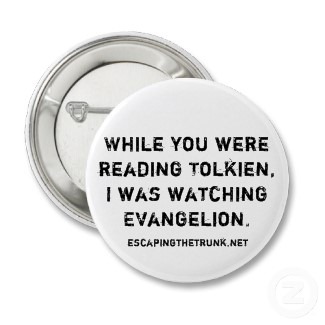 Genre fiction represents a weird dichotomy. On the one hand, literary critics absolutely abhor the stuff. On the other hand, the public eats it up.
Genre fiction represents a weird dichotomy. On the one hand, literary critics absolutely abhor the stuff. On the other hand, the public eats it up.
This is why the Guardian piece observing how much of e-book sales genre-fiction makes up is really hilarious from a genre fan’s point of view: snooty Guardian writer Antonia Senior confronts the fact that “downmarket genre fiction” is driving e-book sales.
For example:
The ebook world is driven by so-called genre fiction, categories such as horror or romance. It’s not future classics that push digital sales, but more downmarket fare. No cliche is left unturned, no adjective underplayed. At the time of writing, the bestselling Amazon Kindle book was Asylum Harbor, by Traci Hohenstein. Crime sells. Try a sample, I dare you. In digital, dross rises. But does this have implications for publishers’ decision-making, as we increasingly migrate?
“Dross rises”? Really? Just because literary fiction makes up 20% of market share, science fiction 19%, and Christian fiction 16%? (And presumably other forms of genre fiction, such as mysteries and crime thrillers, romance, and so on much of the rest.) One imagines Senior making little “ew” noises as she contemplates what dreadful taste the masses have in literature.
Of course, she does have a point that e-readers make people feel more free to read brown-paper-bag e-rotica (in addition to less prurient genre fiction), secure in the knowledge that nobody can see their book’s cover. There’s no need for print publishers to come out with boring-looking covers for popular children’s fiction so adults won’t be ashamed to be seen reading it on the train.
Senior does admit that even she has a fetish for male-oriented historical fiction, reserving her bookshelves for “books that proclaim my cleverness.” But she closes by bemoaning the “boundless idiocy of the unobserved reading public.”
Really? In this era of rampant movies, TVs, computer games, and other distractions, I’d just be glad that they’re reading something at all.

































I am one of those fictional “genre fiction” readers. Not the romance stuff, because I do not find that interesting, but *all* the rest of the spectrum. Beginning from hard-core military SF, through fantasy, crime, paranormal, you name it. So what? There are well written books and those other ones. The beauty is in the eyes of beholder.
Recently I have been suckered into reading certain highly acclaimed book that won Pulitzer Price (I will not name the title, because I do not want to start another 😉 flamewar), because from a short description it seemed like a decent post-apocalyptic book. As a result I have vowed I will not touch another Pulitzer price winner for a loooong time.
I also wouldn’t touch any of those Oprah endorsed books. Not that I have anything against Oprah. I have looked at a few books that she endorses and I concluded that anything she likes is guaranteed to be totally un-interesting to me.
Obviously, what is sauce for the goose is not sauce for the gander.
What Ms. Senior needs to remember is only a dilettante actively seeks to write “literature” for its own sake. Everyone else wants to have fun and get paid (not necessarily in that order). Even Dickens enjoyed telling a good story.
The snobbery of critics knows no bounds. If I get $10 bucks worth of fun out of Ms. Hohenstein, who the fsck is Antonia Senior to tell me I’m wrong?
— C
I doubt if total book sales by category have changed much as a result of the introduction of ebooks. The percentage of total sales that are science fiction or mysteries in 1990 and 2010 should be similar. The only difference would be in eliminating the embarasment factor, so sales of erotica have probably increased.
The change is that SF, mystery, and romance readers are ‘early adopters’ of ebooks. It seems, from the article, that people who like to read literary fiction like to read it on paper. That is their choice; it’s a free country.
My question, however, is whether or not a paper book publishing, distribution, and sales industry can survive when 80 percent of the total book market goes electronic. My answer is that I don’t think so.
I think that within five or ten years the literary ficion readers will be more or less forced to get ebooks to read the Booker prize winners and Pulitzer prize winners. Either that, or they will have to buy paper copies by mail order, or buy print on demand copies.
Gary
Senior says she reserves her bookshelves for “books that proclaim my cleverness.” How sad.
I don’t choose books so that others will think I’m clever. I assume they’ll be able to judge my “cleverness” without perusing my bookshelves…or my Kindle.
My reading tastes are widely varied…genre fiction, classics, histories and biographies, Pulitzer and other award winning novels all are in the mix. They are the same types of books that I used to purchase in paper form. About the only type of book I don’t read is romance.
I choose a book because I think I’ll enjoy it. Whether the person sitting next to me on the train will be impressed with my choice is not something I worry about.
Genre fiction is inherently ephemeral, something intended to be consumed as rapidly and with as little engagement as possible, and then immediately thrown away in search of the next one; the equivalent of a cheeseburger.
e-books were tailor-made to meet that need. You don’t need to go all the way to the bookstore to get another cheeseburger. You don’t even need to get up off the couch!
Which is why Serious Literature Readers are so horrified. It’s the gourmand looking at people wolfing down McDonald’s cheeseburgers.
Pompous self appointed literary types like Senior deserve any derision coming their way. Her contempt for other people is embarrassing.
Literary fiction is a ‘genre’ by the way Ms Senior.
@DD, you’ve got it all wrong: “Classic” fiction is your typical Good American Restaurant; Genre fiction is the equivalent of specialty restaurants, be it Chinese, Greek, Italian, Mexican, deli, fast food, etc. They aren’t all “cheap fare;” they’re unique, exotic, different. Yes, some genre books are the equivalent of cheeseburgers… but many are the equivalent of a fine French dinner, or a feast of tapas.
Assuming no worth out of genre fiction is Senior’s problem: She’s prejudiced against genres. Most critics are, and it often seems as if they are simply because they’re expected to be. How many times have we heard or read a critic say something along the lines of, “Despite myself, I found I enjoyed this story…”? Critics are paid to be snobs. Well, I ignore all snobs, whether they are paid to be snobs or not.
All that’s important is what’s available to read, and whether people enjoying it. If so, forget the snobs and read on.
DensityDuck:
Lonesome Dove and Blood Meridian? Westerns.
Slaughterhouse Five, 1984 and A Clockwork Orange? Science Fiction
The Lord of the Rings? Fantasy
War and Peace? Historical Fiction
I could go on, but I think I have made my point. With the exception of the Lord of the Rings you may not find any of the above on the genre shelves of your local book store, mainly because the literary elite have embraced these books and therefore they are no longer considered ‘genre fiction’ despite the fact that they clearly are.
And of course this ignores the fact that many genres have produced novels that are certainly not meant to be consumed quickly, with little engagement and then forgotten. I defy anyone to read a novel like Enders Game and remain disengaged.
Mainstream fiction is for readers whose vision of the world begins and ends with people like them.
It seems clear to me that snotty nosed ‘literary’ types view the world basically through a pin hole, leaving no room except for people like themselves.
I would say sad, but really I couldn’t give a monkeys 🙂 Like most mainstream readers I have an eclectic palette and don’t judge writers and their craft through any kind of pompous filter.
Recently, an ebook publisher who actually liked what I wrote still wouldn’t publish it because it was “too literary” for the ebook crowd. I think the market will balance out eventually.
It occurs to me that statements like the ones by Ms. Senior. . .are kinda irrelevant. Not a lot more to be said.
@Density Duck
Correction, the gourmand is the guy eating cheeseburgers the one who’s aghast at it is the gourmet.
TSC